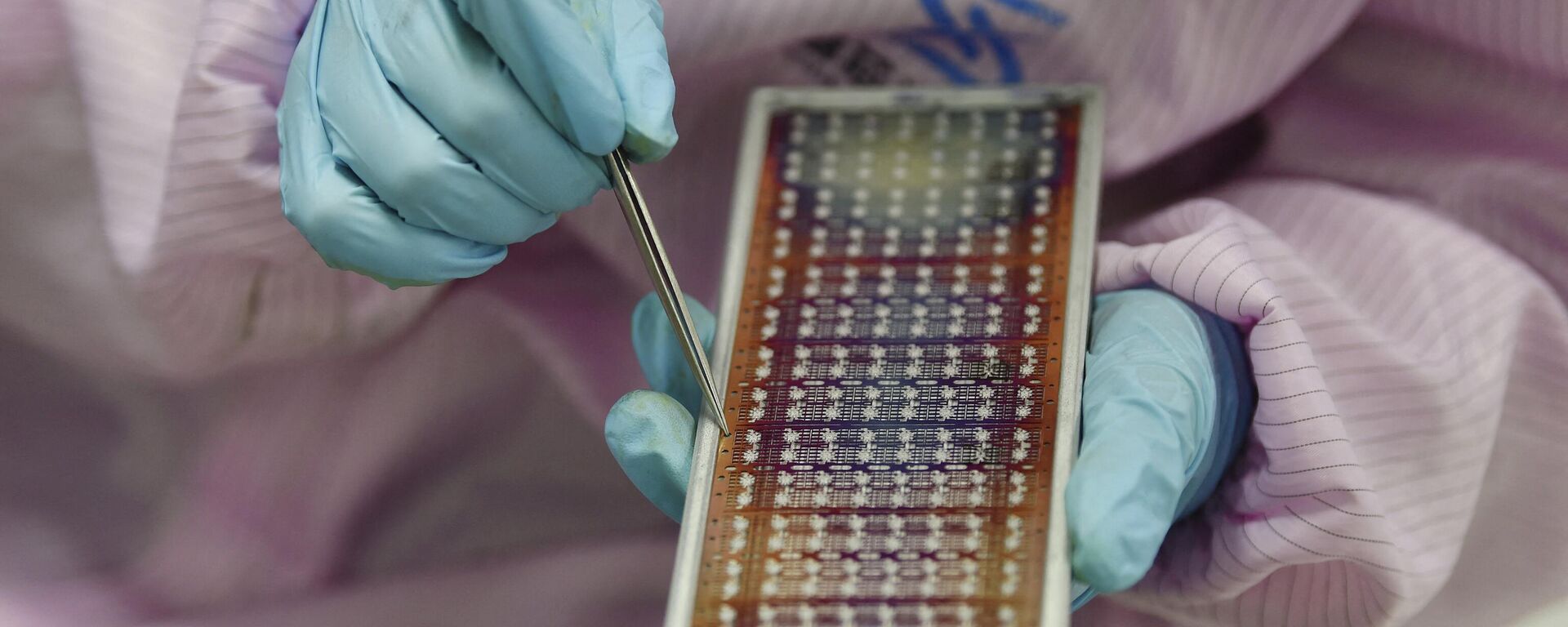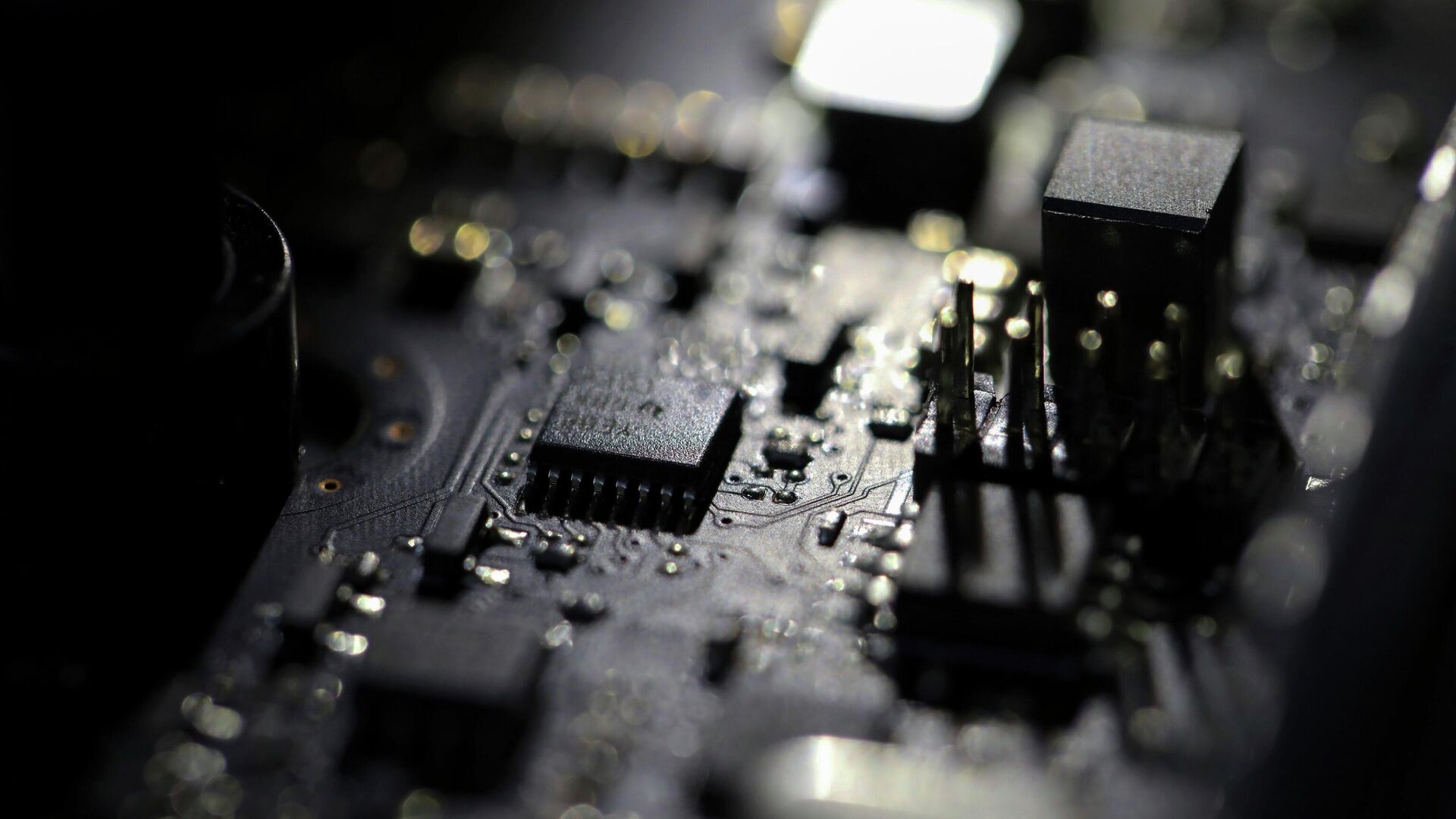https://sputnikglobe.com/20230818/japan-us-south-korea-to-agree-on-exchanging-data-on-semiconductor-shipments-1112701598.html
Japan, US, South Korea to Agree on Exchanging Data on Semiconductor Shipments
Japan, US, South Korea to Agree on Exchanging Data on Semiconductor Shipments
Sputnik International
Japan, the United States and South Korea will agree at the Camp David summit on Friday to create a mechanism to reduce the risk of disruptions in the supply chains of semiconductors and critical minerals though information sharing, Japanese newspaper reported.
2023-08-18T10:02+0000
2023-08-18T10:02+0000
2023-08-18T10:02+0000
world
joe biden
fumio kishida
japan
south korea
european union (eu)
semiconductors
us
https://cdn1.img.sputnikglobe.com/img/07e7/08/0a/1112511874_0:160:3072:1888_1920x0_80_0_0_87b16c0fe20744c65a683f8c61205923.jpg
The countries will agree to share information on shipments of semiconductors, critical minerals, storage batteries and other key industry items, the report said. A special mechanism will be set up to provide early warning of possible disruptions, allowing countries to exchange data in case of a commodity shortage, develop measures and neutralize the negative impact on supply chains, the newspaper added. In July, the Japanese government discussed the establishment of a similar mechanism with the European Union. A mechanism involving Japan, the US and South Korea will expand the network of stable semiconductor supplies. The US-South Korea-Japan summit on Friday will be the first time the leaders of the three countries have met outside of a multilateral event. US President Joe Biden will host South Korean President Yoon Suk-yeol and Japanese leader Fumio Kishida at Camp David, the US presidential retreat located about 60 miles from Washington, D.C. Critical minerals are mineral resources that are vital to the economic well-being of the world’s economies. They include cobalt, lithium, manganese, zinc, chromium, and several others.
https://sputnikglobe.com/20230810/why-is-tsmc-building-a-multibillion-dollar-semiconductor-chip-factory-in-germany-1112491419.html
japan
south korea
Sputnik International
feedback@sputniknews.com
+74956456601
MIA „Rossiya Segodnya“
2023
Sputnik International
feedback@sputniknews.com
+74956456601
MIA „Rossiya Segodnya“
News
en_EN
Sputnik International
feedback@sputniknews.com
+74956456601
MIA „Rossiya Segodnya“
Sputnik International
feedback@sputniknews.com
+74956456601
MIA „Rossiya Segodnya“
japan, the united states and south korea, semiconductor shipments
japan, the united states and south korea, semiconductor shipments
Japan, US, South Korea to Agree on Exchanging Data on Semiconductor Shipments
TOKYO (Sputnik) - Japan, the United States and South Korea will agree at the Camp David summit on Friday to create a mechanism to reduce the risk of disruptions in the supply chains of semiconductors and critical minerals though information sharing, Japanese newspaper reported.
The countries will agree to share information on shipments of
semiconductors, critical minerals, storage batteries and other key industry items, the report said. A special mechanism will be set up to provide early warning of possible disruptions, allowing countries to exchange data in case of a commodity shortage, develop measures and neutralize the negative impact on supply chains, the newspaper added.
In July, the Japanese government discussed the establishment of a similar mechanism with the European Union. A mechanism involving Japan, the US and South Korea will expand the network of stable semiconductor supplies.

10 August 2023, 17:39 GMT
The US-South Korea-Japan summit on Friday will be the first time the leaders of the three countries have met outside of a multilateral event. US President Joe Biden will host South Korean President Yoon Suk-yeol and Japanese leader Fumio Kishida at Camp David, the US presidential retreat located about 60 miles from Washington, D.C.
Critical minerals are mineral resources that are vital to the economic well-being of the world’s economies. They include cobalt,
lithium, manganese, zinc, chromium, and several others.



